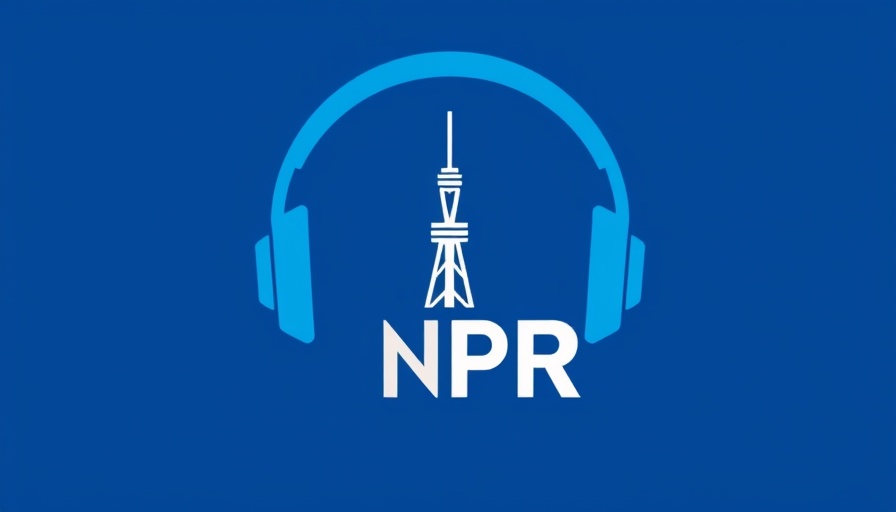
How Federal Budget Cuts Are Impacting Food Safety
In recent years, the United States has witnessed significant budget cuts affecting key agencies responsible for food safety, including the FDA, USDA, and CDC. This dramatic reduction in resources raises serious concerns among experts about the potential rise in foodborne illnesses and recalls, much like the high-profile deli meat recall experienced last year. With a growing population and increasingly complex food supply chains, the implications of inadequate funding on food safety standards cannot be overstated.
The Ripple Effects of Job Cuts
According to food safety analysts, the cuts to these critical agencies result in fewer inspections and less oversight of food production processes. "When resources are stretched thin, oversight becomes reactive rather than proactive," states Dr. Emily Timmons, a food safety researcher. This situation creates a precarious environment where food safety measures are compromised, potentially leading to more frequent recalls and public health risks.
Understanding the Links Between Funding and Safety
The relationship between funding levels and food safety is not just theoretical; it is evidenced by data showing increased foodborne illness outbreaks correlating with a decline in inspections. A study from the Pew Charitable Trusts highlighted that foodborne illnesses hospitalized over 128,000 Americans annually, leading to thousands of deaths. With reduced financial resources, agencies are less equipped to implement rigorous safeguards, making consumers more vulnerable to harmful food products.
What Can Be Done: Actionable Insights for Consumers
As a proactive measure, consumers are encouraged to adopt a more vigilant approach when purchasing food products. Checking for recalls, understanding food labels, and ensuring proper food handling at home can significantly mitigate risks. Additionally, engaging with local advocacy groups that promote food safety can help put pressure on lawmakers to reconsider budget allocations for food safety agencies.
Future Predictions: Trends in Food Safety
Looking ahead, industry experts predict an increased reliance on technological advancements to enhance food safety monitoring. Innovations such as blockchain technology are being explored for tracking food products throughout the supply chain, offering solutions that extend beyond government oversight. However, these systems require initial investments that may face resistance from manufacturers focused on maximizing profits.
Counterarguments: The Industry's Perspective
While food safety experts emphasize the risks posed by budget cuts, some in the industry argue that advances in technology and corporate responsibility can compensate for diminished oversight. They believe that private-sector initiatives can ensure high safety standards without extensive government intervention. However, this perspective is not universally accepted, as evidence suggests that voluntary measures alone may not suffice to protect public health.
The Role of the Consumer in Food Safety
There is also a growing awareness among consumers about their role in promoting food safety. Many are advocating for clearer labeling and transparency regarding food sourcing. This shift not only empowers consumers but also applies pressure on companies to adhere to strict safety standards and ethical practices. Understanding where food comes from and how it’s processed is becoming an essential aspect of consumer choices.
Local vs. Global: Where Does the Issue Stand?
This food safety dilemma isn't just a national issue; it has global ramifications as well. As food supply chains become increasingly globalized, a single incident can have a wide-reaching impact, demonstrating that food safety concerns transcend borders. Collaborating internationally to establish unified standards and best practices may be crucial to mitigating risks globally.
Final Thoughts: Why Food Safety Matters
Addressing these challenges requires a concerted effort from government, industry, and consumers alike. As food safety funding faces scrutiny, it is essential that all stakeholders recognize the significant implications these decisions hold not just for individual health, but for the future of public confidence in the food supply. The call for balanced action—advocating for better funding, emphasizing consumer education, and fostering industry accountability—remains critical to enhancing food safety in a changing world.
Join the conversation on food safety advocacy and stay informed on how you can contribute to a safer food environment. Your voice matters in ensuring that food safety regulations receive the attention they deserve.
 Add Row
Add Row  Add
Add 




Write A Comment